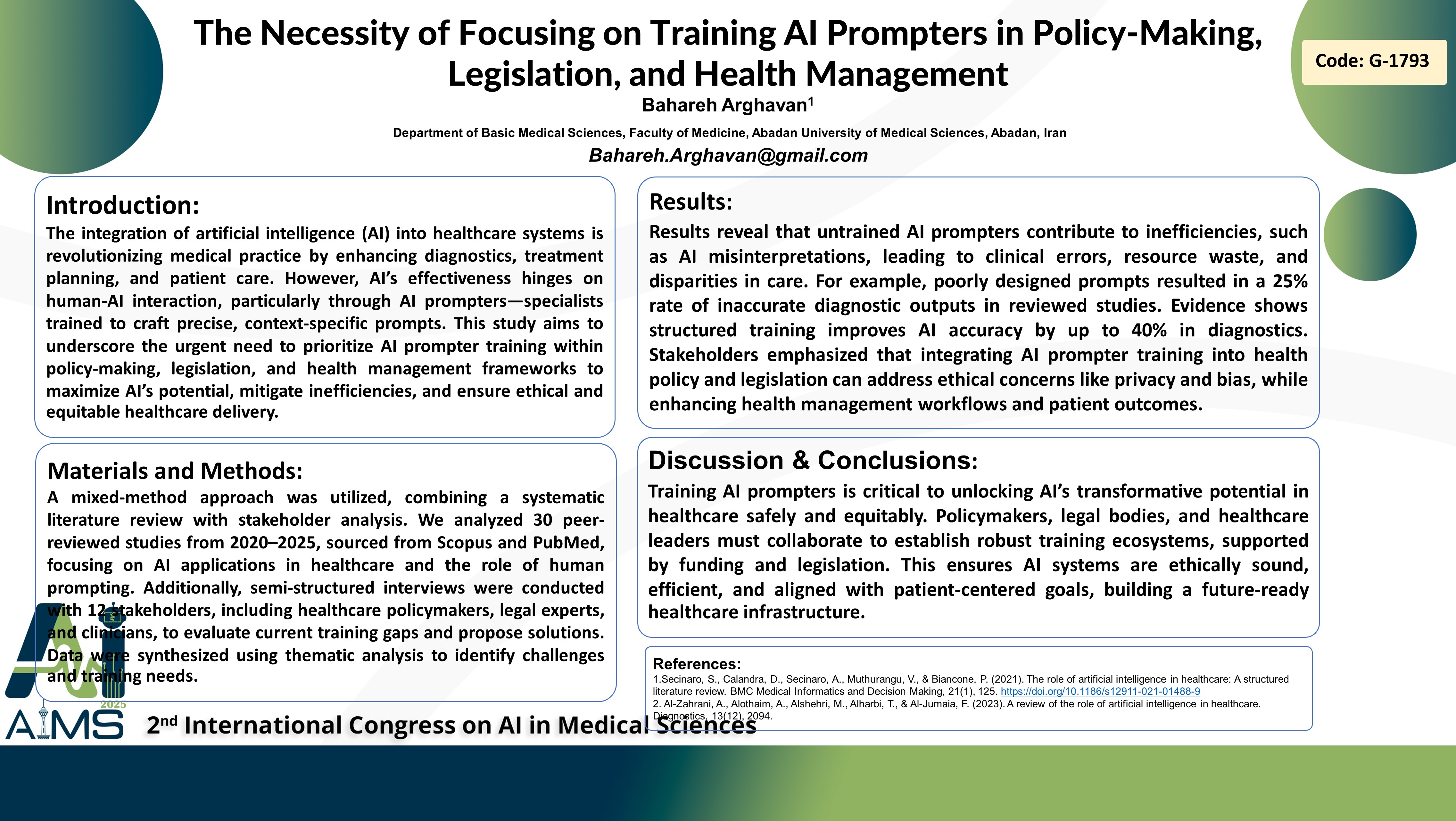The Necessity of Focusing on Training AI Prompters in Policy-Making, Legislation, and Health Management
Code: G-1793
Authors: Bahareh Arghavan * ℗
Schedule: Not Scheduled!
Tag: Health Policy, Law & Management in AI
Download: Download Poster
Abstract:
Abstract
Background and Aims: The integration of artificial intelligence (AI) into healthcare systems is revolutionizing medical practice by enhancing diagnostics, treatment planning, and patient care. However, AI’s effectiveness hinges on human-AI interaction, particularly through AI prompters—specialists trained to craft precise, context-specific prompts. This study aims to underscore the urgent need to prioritize AI prompter training within policy-making, legislation, and health management frameworks to maximize AI’s potential, mitigate inefficiencies, and ensure ethical and equitable healthcare delivery. Method: A mixed-method approach was utilized, combining a systematic literature review with stakeholder analysis. We analyzed 30 peer-reviewed studies from 2020–2025, sourced from Scopus and PubMed, focusing on AI applications in healthcare and the role of human prompting. Additionally, semi-structured interviews were conducted with 12 stakeholders, including healthcare policymakers, legal experts, and clinicians, to evaluate current training gaps and propose solutions. Data were synthesized using thematic analysis to identify challenges and training needs. Results: Results reveal that untrained AI prompters contribute to inefficiencies, such as AI misinterpretations, leading to clinical errors, resource waste, and disparities in care. For example, poorly designed prompts resulted in a 25% rate of inaccurate diagnostic outputs in reviewed studies. Evidence shows structured training improves AI accuracy by up to 40% in diagnostics. Stakeholders emphasized that integrating AI prompter training into health policy and legislation can address ethical concerns like privacy and bias, while enhancing health management workflows and patient outcomes. Conclusion: Training AI prompters is critical to unlocking AI’s transformative potential in healthcare safely and equitably. Policymakers, legal bodies, and healthcare leaders must collaborate to establish robust training ecosystems, supported by funding and legislation. This ensures AI systems are ethically sound, efficient, and aligned with patient-centered goals, building a future-ready healthcare infrastructure.
Keywords
Artificial Intelligence, AI Prompters, Healthcare Policy
